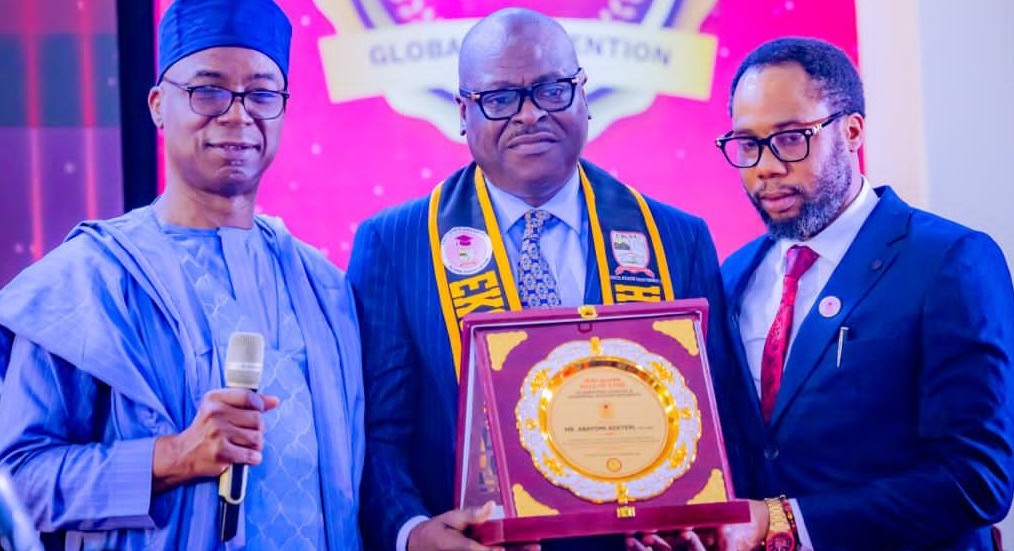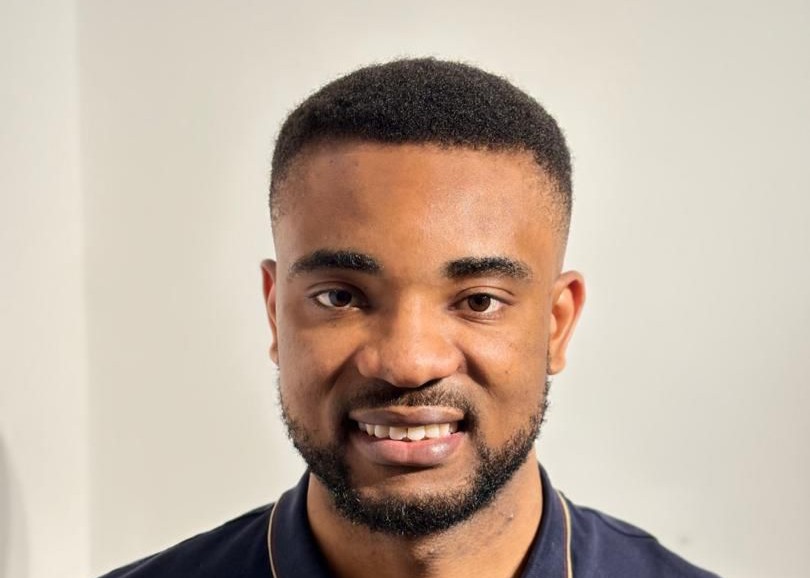From Sango Ota, Ogun State, to some of Europe’s most prestigious research institutions, Adeyemi Timothy Akinade’s remarkable academic journey is redefining what’s possible for scientists on the world stage.
Adeyemi Timothy Akinade, a trailblazer from Nigeria, has made history as the first Nigerian to be admitted into the prestigious Erasmus Mundus Master’s Programme in Evolutionary Biology (MEME) since its inception in 2010. With a first-class degree in Zoology from the University of Ibadan—where he graduated as the best student in his cohort—and an MSc in Cell Biology and Genetics, Adeyemi’s academic journey has taken him from Nigeria to leading institutions across Europe, including the University of Groningen in the Netherlands and the University of Montpellier in France. Along the way, he collaborated with leading scientists at Center for Functional and Evolutionary Ecology (CEFE), the National Center for Scientific Research (CNRS), and the Institute for Research and Development (IRD) in France as well as Groningen Institute for Evolutionary Life Sciences (GELIFES) in the Netherland and enriched his knowledge and cultural perspective through a Summer School at Uppsala University, Sweden. In this interview, he shares his inspiring journey, the challenges he has faced, and his vision for contributing to scientific advancement on a global scale.
Adeyemi, congratulations on your achievement! How did you first learn about the Erasmus Mundus Master’s Programme in Evolutionary Biology (MEME), and what inspired you to apply?
Thank you very much! I first heard about the Erasmus Mundus Master’s Programme in Evolutionary Biology through one of my mentors, Prof. Chris Agulanna, and other scholarship mentoring networks promoting international opportunities. The main reason I was drawn to the program is its interdisciplinary focus—I wanted to understand how evolutionary adaptations to past environments contribute to disease susceptibility in modern contexts. This, combined with the program’s integration of evolutionary theory with medicine through cutting-edge computational and genomic methods, perfectly aligns with my passion for exploring how genomes evolve and impact human health and other biological traits. Moreover, the opportunity to study across multiple top-tier European universities, which promised to broaden my scientific horizons and cultural experiences, reinforced my decision.
What was your academic and professional background before starting the MEME programme?
I graduated with first-class honours in Zoology from the University of Ibadan, where I developed a strong foundation in biology and genetics. I then pursued a master’s degree in Cell Biology and Genetics at the University of Ibadan, working under the supervision of Professors Adekunle Bakare and Rufus Akinyemi, which deepened my expertise in molecular techniques and genomics. Before joining the MEME program, I gained experience in biomedical writing and data analysis, refining my ability to interpret complex biological datasets and communicate scientific findings effectively. This diverse background enabled me to transition smoothly into the interdisciplinary and computational focus of MEME.
Can you describe your journey through the Erasmus Mundus program? How was the experience studying in both the Netherlands and France?
The journey was both challenging and incredibly rewarding. I began my first semester at the University of Groningen, working with the Groningen Institute for Evolutionary Life Sciences (GELIFES), where I built a solid foundation in evolutionary biology principles.
For my second and third semesters, I moved to Montpellier, France, joining research groups at the Centre for Functional and Evolutionary Ecology (CEFE), the National Centre for Scientific Research (CNRS), and the Institute for Research and Development (IRD). CEFE is a leading research centre specialising in ecology and evolutionary biology, operating under CNRS—the largest governmental research organisation in France. IRD focuses on sustainable development research, often addressing global ecological and health challenges. This intellectually stimulating environment, collaborating with scientists who are leaders in ecological genomics and evolutionary genetics, pushed me to expand my analytical and research skills.
I worked closely with Dr. Stéphanie Bedhomme at CEFE, CNRS, focusing on antimicrobial resistance (AMR) research that involved investigating the spread of third-generation cephalosporin (3GC) resistant genes in yellow-legged gulls on Carteau Islet, France. This work highlighted the intersection between environmental reservoirs and public health, demonstrating how natural ecosystems can influence the spread of resistant bacteria across environments. Following this, I attended a summer school in Uppsala, Sweden, which further enriched my knowledge and skills in evolutionary biology.
At IRD, under the mentorship of Professor Michael Fontaine, I contributed to vector genomics projects, investigating genetic diversity and adaptation in malaria vectors, particularly Anopheles bwambae. I conducted genome-wide analyses, characterising genetic variation, chromosomal inversions and their role in population divergence and local adaptation, which has important implications for understanding malaria transmission and control.
Returning to Groningen for my final semester in 2024, I wrote and defended my thesis, integrating all I had learned into research that combined theoretical and applied approaches in evolutionary genomics. Specifically, I focused on sex determination genes in the black soldier fly (Hermetia illucens), an economically important species used in sustainable waste management, animal feed production, and bioresource recycling. Understanding the genetic mechanisms underlying sex differentiation in this species is critical for improving breeding programs and optimising its industrial applications in sustainable waste management, animal feed production, and bioresource recycling. This project was both technically challenging and deeply rewarding, addressing fundamental questions about genetic regulation with direct applied benefits.
You mentioned attending a summer school at Uppsala University in Sweden in 2023. How did that experience add to your training?
The Summer School at Uppsala University was a fantastic opportunity to connect with colleagues who didn’t start the Erasmus MEME program at the same university I did—that is, those on different tracks or paths. I had the chance to learn from experts on various topics and discuss possible career paths after MEME.
One of the highlights was the colloquium sessions, where students presented special literature review topics on evolution or ecology. We also celebrated with a graduation ceremony and party for the MEME finalists, complete with pictures to capture the memories. Outside the academic sessions, we enjoyed games and visits to the botanical garden, city centre, and the new Uppsala library. It was a wonderful blend of networking, learning, and cultural experiences.
What were some of the biggest challenges you faced during your studies, and how did you overcome them?
One significant challenge was adapting to different academic cultures and expectations in the Netherlands and France. Each university had its own teaching styles, research priorities, and even languages—although instruction was in English—which required me to be flexible and proactive in building relationships with supervisors and peers. Additionally, managing a workload of computational projects demanded strong discipline and effective time management. I overcame these challenges by staying organised, seeking support when needed, and maintaining a clear focus on my research goals.
How has this experience shaped your perspective on science and your future goals?
The MEME program has solidified my belief in the power of interdisciplinary research and international collaboration. It showed me how integrating evolutionary theory with computational genomics can reveal insights into complex biological processes and diseases. Looking forward, I am eager to contribute to genomics research that can improve human health, especially in Africa, where such work is still emerging. I want to mentor young African scientists and help build research capacity that addresses local and global challenges.
What message do you have for aspiring African scientists who want to pursue international opportunities like Erasmus Mundus?
My advice is simple: be persistent, build a strong foundation in your field, and don’t be afraid to apply for competitive programs. Rejections are part of the journey, but every application improves your chances and sharpens your focus. Seek mentors who believe in you and stay curious. The global scientific community is increasingly diverse and welcoming, and your unique perspectives are valuable.
What are you doing currently?
I am currently pursuing a PhD in Genetics, focusing on the evolution of epigenetic ageing across mammals. My research involves analysing large-scale genomic and epigenomic datasets, applying the computational and statistical skills I developed during the MEME program. The interdisciplinary training I received, combining evolutionary biology, genomics, and bioinformatics, directly supports my work. I aim to uncover novel insights into ageing and related diseases, which could have important implications for personalised medicine.
Akinade stands as an extraordinary achiever whose scholarly distinction and relentless determination have propelled him from local beginnings to the global scientific arena. Now pursuing his doctoral research at Clemson University, his journey exemplifies the transformative impact of interdisciplinary training and international collaboration in shaping a trailblazing career. As he advances in his cutting-edge work, Adeyemi remains deeply committed to inspiring and equipping the next generation of scientist-visionaries poised to redefine the future of science across the globe.






